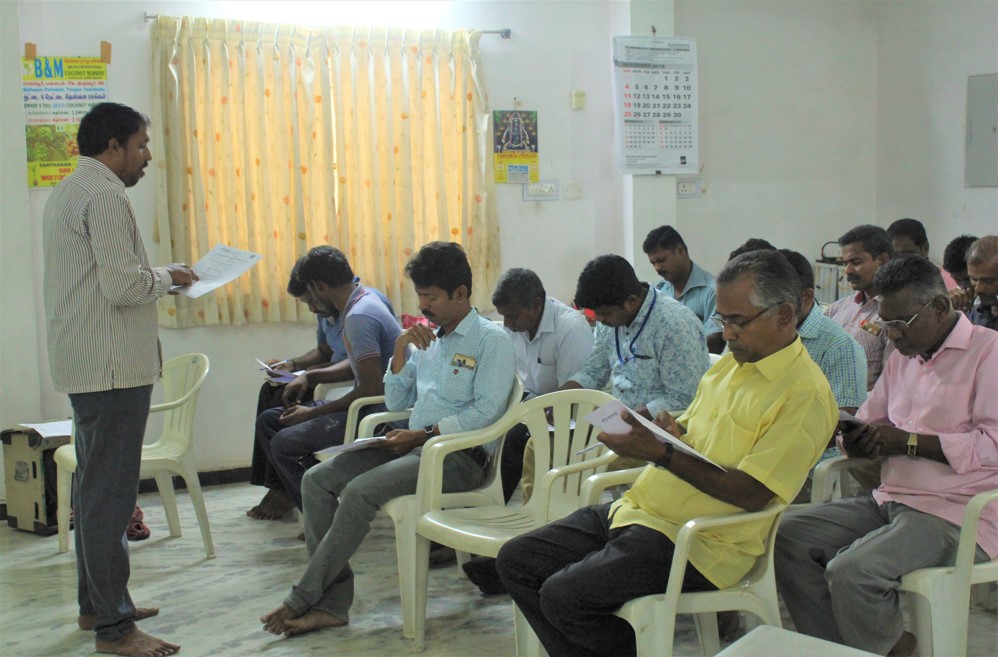Industrial energy efficiency in India is the key to progress, on the path towards achieving 8% GDP growth and realizing the GHG emission reduction targets, committed under the Intended Nationally Determined Contributions (INDC).
As per the estimates made by a study supported by the Bureau of Energy Efficiency (BEE), India’s energy savings potential is to the tune of 87 Mtoe by 2031 with highest contribution coming from industrial sector and from micro, small and medium enterprises (MSME). As many organizations continue their efforts to make substantial inroads, there is considerable untapped potential for more energy savings and reduction in GHG emissions.
Understanding Barriers and Resolving Them
The key barriers and challenges hindering energy efficiency adoption in the MSME sector are related to awareness, technical expertise, and finance. The work force involved in the operations have limited understating on the best operating and monitoring practices to enable energy efficient operations. More importantly, there is limited motivation for enhancing their skills. This can be addressed by designing capacity building programs with key emphasis on best practices in energy efficient operations. To motivate participation of SME managers, a certificate-based credential mechanism may be explored. Coupled with that, demonstrate their ability to implement best practices learnt during the programs, verifiable through energy savings. This would not only motivate them to build their credentials, but would also encourage unit owners to send their operators for relevant capacity building programs. This concept can be piloted in a few energy intensive clusters, in collaboration with industries.
Based on our interactions with units, limited awareness amongst the SME owners about new energy efficient technologies, energy efficiency (EE) financing schemes, is a barrier in accelerating adoption of energy efficient technologies. Such barriers can be addressed by conducting short duration awareness programs covering business cases for potential EE technologies, case studies and information about key financing schemes. This barrier may also be addressed by constituting and convening clean energy forums (CEFs) periodically. The main objective of the CEF is to facilitate a dialogue between these stakeholders, and drive concerted action to address the barriers to EE adoption in a cluster. The CEF’s mandate is to enable ease of access to finance, technology, energy and capacity building services within the cluster.
On the technical side of things, a critical roadblock is lack of technical assistance or handholding support to units for identified energy efficiency measures. When coupled with absence of convincing evidence or lack of information on the technical performance of potential new EE technology, units become wary of warming up to new interventions. This problem is further aggravated when relevant technology service providers are not available locally. While the technical performance of potential EE technologies can be established by pilot demonstrations in the cluster, innovative financing mechanisms are needed to replicate such technologies at scale. Dedicated financing schemes and incentives are already provided by regulatory agencies, financing institutions and district industry centers (DICs). Despite these being available, financing continues to be a barrier as units may not know about the schemes, or find the processes to avail these to be complex and time-consuming. Lower ticket size of some of these loans for SMEs make them even less appealing. Local institutions including industry associations can play a vital role in not only addressing these challenges but also in ensuring long term sustainability of these solution and therefore equipping these institutions becomes important.
Establishing Clean Energy Practices in SMEs
The Institute for Sustainable Communities (ISC) as part of the EHS+ Center and Clean Energy Accelerator Program being supported by the United States Agency for International Development (USAID) has worked with number of SME units from textile, automotive, auto-ancillary, engineering, and chemical sectors to improve their overall energy performance and profitability. The aim of the program is to help them become economically sustainable, and resilient by implementing project activities in close collaboration with local institutions, designed to address the identified fundamental barriers and challenges in a sustainable manner. To enable greater awareness on best operating practices, ISC along with the Dyers Association of Tirupur conducted a series of hands-on capacity building programs with more than 200 operators and electrical technicians, on the operational aspects of energy management in boilers and electrical systems. ISC has successfully conceptualized and demonstrated the concept of Clean Energy Forum with local associations. These CEFs are represented by unit owners, suppliers, technology manufacturers, energy service companies, financial institutions, and industry associations. ISC worked with SMEs in Tirupur to identify improvement opportunities through detailed energy audits and coupled it with technical assistance to enable implementation of identified measures. Providing follow-up technical assistance is useful. This was as observed with the pilot demonstration of low-grade effluent waste heat recovery technology. Owing to higher cost, low grade of heat, and presence of impurities in the effluent, units had concerns around the technical performance of this technology. This was addressed through a series of meetings with technical experts, unit owners and technology suppliers. Subsequently this resulted in two units coming forward for pilot demonstrations. To address the challenge related to higher and upfront investment in implementation of energy efficient technologies, leveraging economies of scale through demand aggregation and ESCO financing-based business models may be potential options to achieve replication at scale. ISC has been working with Energy Efficiency Services Limited (EESL) to implement the National Motor Replacement Program (NMRP), which aims to replace conventional inefficient motors with energy efficient IE3 motors using demand aggregation and ESCO financing-based business models. ISC conducted a series of focused workshops with SMEs to create awareness about the program, and provided technical assistance to help them participate in the program.
Over the last 3 years, around 200 factories have benefitted from ISC’s work being supported by the United States Agency for International Development (USAID) in the Tirupur cluster. ISC has enabled the transformation of these factories from energy consumers to energy savers, through individual successes and institutional changes.
Mr. Madanraj, an electrician from a Common Effluent Treatment Plant located in Tirupur, learned how to use a Variable Frequency Drives (VFD) with Induced Draft (ID) and Force Draft (FD) fans in boilers, and applied his learning to implement it in the unit resulting in annual monetized savings of Rs 4.90 lacs per year.
Forging Ahead – Continuing the Advancement of EE Interventions





